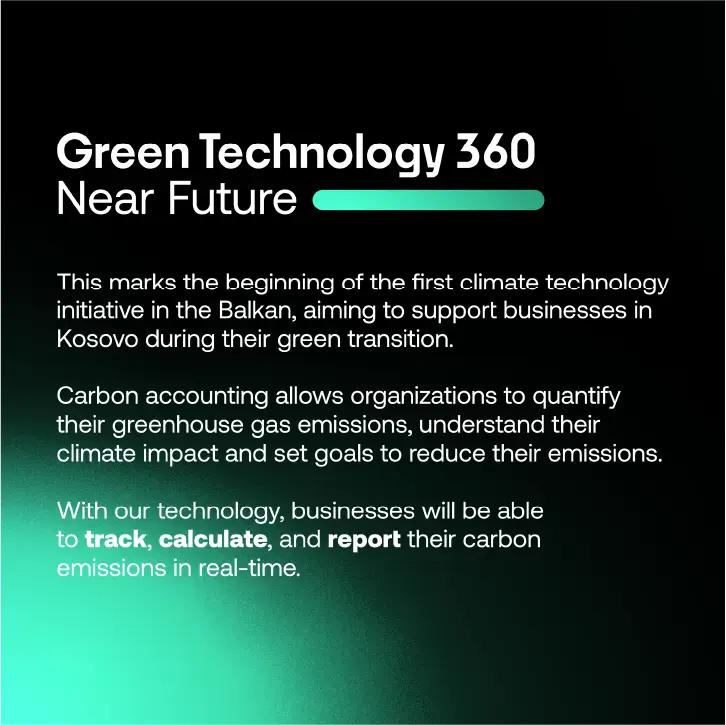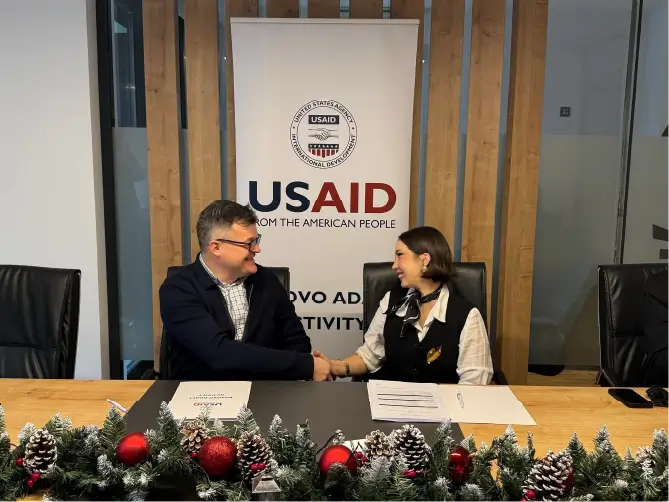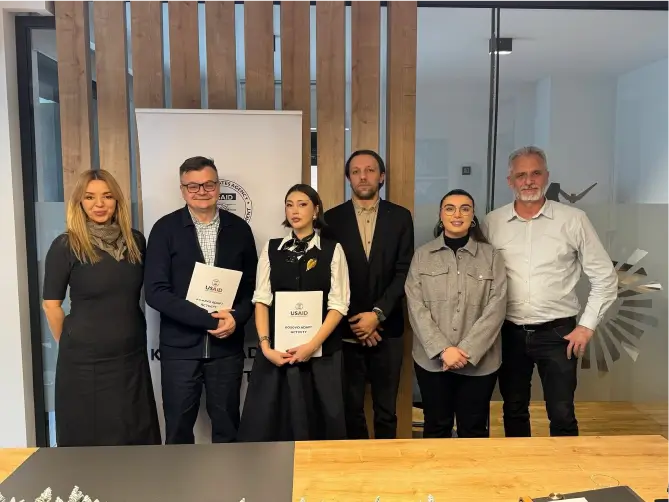Habitat signs Strategic Partnership with USAID Kosovo Adapt Activity
Habitat pioneering climate technology in Kosovo, has officially entered into a strategic partnership with the USAID Kosovo Adapt Activity to implement the groundbreaking climate technology project, Green Technology 360 – The Near Future; the first of its kind for the Balkan region. This strategic collaboration introduces Karbon360, the first climate technology platform developed in Kosovo, aiming to revolutionize the way businesses in the Balkans manage greenhouse gas emissions.
The Karbon360 platform offers advanced tools designed to the needs of the private sector. With a Carbon Footprint Calculator and industry-specific dashboards, businesses can efficiently track, report, and manage their emissions. This technology empowers companies to embrace sustainability, reduce their environmental impact, and align with global climate action standards.
As the first initiative of its kind in the region, Karbon360 represents a significant milestone in Kosovo’s innovation landscape. Entirely developed and executed locally, it showcases the potential of homegrown technology to address pressing global challenges. Habitat’s expertise in environmental sustainability, combined with the support of USAID Kosovo Adapt Activity, ensures the successful implementation of this groundbreaking solution.
Through this partnership, Habitat and USAID are fostering a greener and more resilient future for Kosovo’s private sector. By equipping businesses with practical tools and data-driven insights, the project aims to drive efficiency, enhance competitiveness, and promote long-term sustainability.
The collaboration also emphasizes Kosovo’s role as a regional leader in climate technology and innovation. By adopting Karbon360, businesses across the Balkans can take proactive steps to reduce their carbon footprint, contributing to global climate goals and paving the way for a sustainable future.
Habitat’s partnership with USAID Kosovo Adapt Activity demonstrates the transformative power of collaboration and underscores the importance of investing in local innovation to address global environmental challenges. Together, they are setting a new standard for climate-smart practices in the region.




